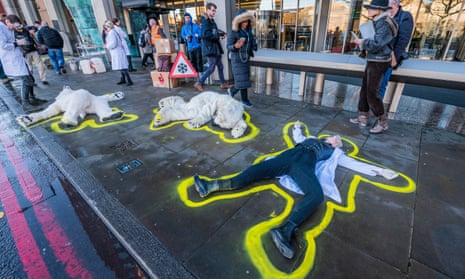Environmental and animal rights activists have been referred to the government’s controversial anti-radicalisation programme, the Home Office has admitted.
Responding to a freedom of information request, the Home Office provided a breakdown of reasons behind referrals of individuals to its Channel programme, an arm of Prevent, for “other types of radicalisation.’’
Environmental and animal rights were among types of “concerns” identified among individuals referred, as well far-left extremism, Northern Ireland-related extremism, “anti-Isil” and Sikh-related extremism.
Commenting on the inclusion of environmental and animal rights activism, Rosalind Comyn, Liberty policy and campaigns officer, said: “This reinforces long-held concerns that the government’s staggeringly broad definition of extremism enables the police to characterise non-violent political activity as a threat, and monitor and control any community they wish.
“If you’re passionate about climate change or animal rights you’re at risk of being labelled extremist and having your details passed to and stored by the police.
“While this news is alarming for all environmental and animal rights activists, the effects of Prevent are not evenly felt. It has disproportionately targeted Muslims and people of colour for over a decade, sowing distrust and alienation into our communities.”
The revelation comes after a series of reports by the Guardian exposed counter-terrorism interest in environmental groups such as Extinction Rebellion, as well as other non-violent campaign groups including Peta and Stand Up to Racism.
A range of guidance documents drawn up by the counter-terrorism policing network and featuring environmental groups were sent to teachers, doctors and other public sector workers, encouraging them to refer concerns to Prevent.
Senior counter-terrorism police chiefs have since insisted that they do not believe support for environmental causes amounts to extremism and pledged to amend or withdraw documents that could have created that impression.
The Home Office annually publishes figures on the number and type of referrals to Prevent, as well as a breakdown of the number of individuals referred that go on to receive support through Channel, a programme which provides tailored support for individuals feared to be at risk of being drawn into terrorism.
A total of 776 individuals were referred to the Channel process for concerns related to “other types of radicalisation” in the year to March 2019, according to figures published in December.
The Home Office said that fewer than 10 people were referred for Channel support for environmental concerns, and fewer than 10 were referred for animal rights activism.
Only one in 10 referrals ends up advancing to the Channel programme; the majority leave the process or are signposted to alternative services such as substance misuse treatment or mental health support.
The figures show that 660 were referred for “international other extremism”, which the Home Office said was Islamist-related extremism with links to global networks such as Daesh or al-Qaida.
Twenty-five were referred for “far-left related extremism”, 18 for “anti-Isil” concerns and 14 for Northern Ireland-related extremism. Fewer than 10 were referred for international Sikh-related extremism and fewer than 10 for concerns related to Hezbollah, the Shia Islamist group.
Public sector workers, including teachers and doctors, are under a legal duty to refer to Prevent any individual they suspect could be vulnerable to radicalisation.
The total number of referrals to Prevent in the year to March 2019 was 5,738, of which 4,407 (77%) were deemed not suitable for Channel. Around 254 Channel cases were for concerns about suspected far-right radicalisation, while 210 cases were referred for suspected Islamist radicalisation.
An independent review of Prevent was launched last year but fell into crisis in December when its chair, Lord Carlile, was forced to stand down over concerns about his impartiality in the role. The government is yet to announce Carlile’s successor and is legally bound to complete the review and respond by August.
A Home Office spokesperson said: “Protest groups are not extremist groups and membership of a protest organisation is not an indicator that an individual is vulnerable to being drawn into terrorism.
“All Prevent referrals are carefully assessed. If an individual does not meet the Prevent threshold, the case is immediately closed.”








